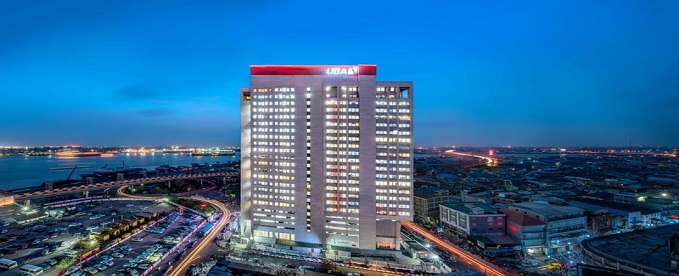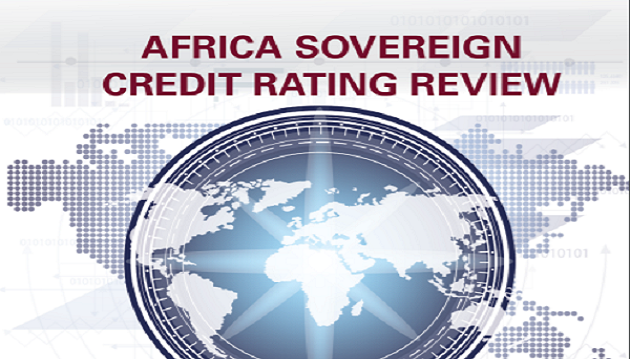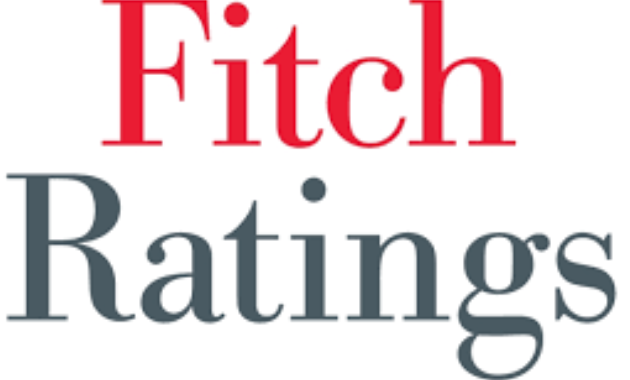E-Financial
UBA Reels Achievements @ 75, Seeks Shareholders’ Nod for N500Bn Recapitalisation

United Bank for Africa (UBA) has said that its 75th anniversary is a testament to resilience, commitment to excellence.

Oliver Alawuba,
The bank at a world press conference in Lagos peeped into a past that was filled with success stories and promised future enduring milestones of achievements.
Also at the event, the bank hinted that it would this Friday seek shareholders’ approval for its recapitalisation plans, assuring that the bank is poised to meet the deadline as it kicked off its yearlong 75th anniversary activities.
Oliver Alawuba, group managing director, said the bank is set to meet the deadline for the N500 billion new capital base set by the Central Bank of Nigeria (CBN) as the bank continues not only as the leading financial institution in Nigeria but also in the African continent and beyond, considering its presence in 20 African countries and four global financial nerve centres (New York, London, Paris and Dubai).
He noted that the bank would over the next years focus on increasing its presence in the countries where it currently operates, adding that the bank will also focus on supporting small and medium scale enterprises (SMEs).
To the bank, the past 75 years have been marked by stability and excellence, pillars upon which UBA’s legacy stands tall.
The bank was the first bank in Nigeria to offer an initial public offering (IPO) in 1970, the first Nigerian bank to be listed on the Nigerian Stock Exchange (NSE), now Nigerian Exchange Limited (NGX).
It was also the first Nigerian bank in the USA and London to open a branch and the first bank in Nigeria to install Automated Teller Machines (ATMs) and open a campus branch at the University of Lagos in Nigeria.
UBA was the first Nigerian bank to open a subsidiary in Africa (Ghana in 2005), appointed the first female board chairperson in Nigeria and was a pioneer in introducing mobile banking in Nigeria.
It also launched the first multi-lingual chatbot banking in Nigeria called Leo as well as the first Nigerian bank to launch the most successful prepaid cards across Africa.
While honouring past leaders of the bank for their steadfastness, Alawuba appreciated the sacrifices, contributions, support and guidance over the years of Tony Elumelu, current group ghairman,.
He said, “We appreciate and honour you because you built and nurtured the platform on which we are standing today. Our Group Chairman truly deserves special recognition and mention.
“Without his visionary push in 2005 and tutelage over the years, I doubt whether we would be where we are today. For these and more, we say a big and resounding thank you to him”.
He also used the opportunity to thank all customers of UBA around the globe as their consistent support and patronage over the years have been amazing.
He said, “You meet several people, they will tell you that they are third or fourth generation of UBA customers in their families, that their grandparents and parents were customers of UBA and their children currently carry UBA ATM cards, enrolled on our mobile banking and LEO chatbot banking. This is the strength of UBA.
“This milestone is not just a celebration of longevity, but a testament to resilience, innovation, and unwavering commitment to excellence that have defined UBA’s journey over the decades.
“As we reflect on the significance of this epoch-making event, it is important to acknowledge that UBA means different things to different people. For some, UBA is a trusted financial partner; for others, UBA is a beacon of stability and reliability, a development partner in various local communities as well as a catalyst for African development.
“Since its inception in 1949, UBA has evolved from a modest beginning on Lagos Island to a global financial institution with a presence in 20 African countries and 4 global financial nerve centres (New York, London, Paris and Dubai).
“Today we have over 25,000 staff, over 35 million customers served through multiple channels – over 350,000 POS terminals, 2,000 ATM terminals, 1,000 business offices and 19.7 million card customers.
“Amidst economic challenges and market dynamics, UBA has demonstrated remarkable financial strength and resilience. Its splendid performance, especially within the last year, is a testament to the robust fundamentals and sound strategic decisions taken by the bank.
“Going forward”, Alawuba said, “As we navigate through the ever-changing landscape, we remain committed to creating value for our shareholders and capitalising on emerging opportunities in the market.
“Innovation and digital transformation are at the heart of UBA’s strategy for future growth and competitiveness. We will continue to invest in innovative products, services, and digital platforms that enhance customer experience and drive operational efficiency. Our commitment to corporate social responsibility is strong, with initiatives focused on education, healthcare, entrepreneurship, and environmental sustainability; thus, making a concrete impact on communities across Africa”
Looking ahead, Alawuba said, “Our vision is clear and it is to be the role model for African businesses. UBA is one bank, uniting Africa while connecting Africans to the world and the world to Africa. Our primary focus is to be the payment bank for capital flows, trade and investments between Africa and the rest of the world.
“We are committed to expanding our presence, seizing growth opportunities, and delivering value to all stakeholders. Collaboration and partnerships as exemplified by the $6bn SME funding agreement signed with the African Free Trade Area (AfCFTA) will be instrumental in achieving our strategic objectives. We are dedicated to deepening relationships with customers, employees, regulators, and other stakeholders for mutual benefit and long-term success”.
Responding to a question from the media over concerns that the bank’s share price is considered undervalued despite its recent surge, Alawuba said United Bank for Africa’s share price could hit the N100 per share mark.
E-Financial
African Union Launches Credit Rating Agency to Promote Regional Economic Integration

The African Union has taken a significant step towards promoting economic resilience in Africa with the launch of the African Credit Rating Agency (AfCRA).

The new agency aims to provide a fair, transparent, and unbiased credit rating system, addressing the biases of global rating firms that have reportedly cost Africa over $75 billion in investment opportunities.
According to Kenya’s President, William Ruto, who unveiled the agency at an AU event in Addis Ababa, Ethiopia on Friday, “Global credit rating agencies have not only dealt us a bad hand, they have also deliberately failed Africa.”
Ruto criticized the flawed models, outdated assumptions, and systemic bias used by global rating agencies, which paint an unfair picture of African economies and lead to distorted ratings, exaggerated risks, and unjustifiably high borrowing costs.
The launch of AfCRA is a response to the long-standing grievances of African countries regarding their treatment by international credit rating firms.
The agency aims to provide fair, transparent, and development-focused credit ratings that reflect the realities and potential of African economies.
Improving Africa’s rating by one notch could unlock $15.5 billion in additional funding for the continent, according to Ruto.
The idea of creating an African credit rating agency has been in the pipeline for years, with the AU officially announcing its plans to move forward with the project in September 2023.
The push for an African credit rating agency gained momentum in 2022 when Senegal’s former president Macky Sall called for a new system to “end the injustices” faced by African countries.
The African Credit Rating Agency is part of Africa’s continuous march towards economic resilience, which also includes the recent establishment of the African Energy Bank, headquartered in Nigeria.
The bank aims to provide support to unleash Africa’s energy potential and bring an end to energy poverty on the continent.
E-Financial
Nigeria Worst Hit by Crypto Currency Fraud

Fraud in the crypto industry in African continent has soared by 48 percent over the past year and Nigeria is worst hit according to report by CAJ News.

This is according to the Sumsub State of the Crypto Industry 2025 report, which indicates Nigeria recorded the highest rate of fraud across the sector, at 8,3 percent.
Thus, this percentage of verification attempts were flagged as fraudulent.
Uganda, Kenya and Tanzania all have fraud rates of 4,8 percent, with Cameroon (4,5 percent), Ethiopia (3,7 percent), Ghana (3,5 percent), Algeria (2,6 percent), Benin (2,6 percent) and Morocco (2,1 percent) recording significant rates.
The most popular fraud types are document forgery (affecting 31 percent of surveyed companies), phishing (20 percent) and money mulling (15 percent), followed by account takeover (14 percent) and forced verification (12percent).
Simsub, the cyber crime expert, believes this surge highlights the need for companies to adopt artificial intelligence (AI)-powered detection, biometrics and continuous monitoring to enhance security.
The report states that innovations like biometric checks, AI-backed automation and document-free verification have boosted crypto platform users’ on-boarding success rates to 93,39 percent and reduced verification time by 46 percent, overall improving customer on-boarding while reducing drop-off cases.
Hannes Bezuidenhout, Vice President of Business Development (Africa) at Sumsub, said Africa’s growing adoption of crypto provided its own challenges, but the company foresaw increasing demand and growing user expectations across the continent.
“So it’s crucial for VASPs operating in the region to implement secure verification systems and stay vigilant to fraud, while keeping an eye on evolving and new regulations concerning the crypto sector to avoid fines.”
VASP is an acronym for virtual asset service provider.
E-Financial
Banking Consolidation Less Likely as Nigerian Banks Meet Capital Requirements – Fitch

Fitch Ratings has said that Nigerian banks are making significant progress in raising core capital to meet new paid-in capital requirements. The rating agency noted that the banks are generally on track to meet the end-of-first quarter (Q1) 2026 deadline.

This is supporting a recovery in capitalisation from the impact of naira devaluation, providing fuel for business growth. It also reduces the likelihood of significant banking sector consolidation.
In March 2024, the Central Bank of Nigeria announced a significant increase in paid-in capital requirements (share capital plus share premium) for commercial, merchant and non-interest banks.
Banks have three ways to comply – through equity injections, M&A and downgrading their licence authorisation.
Fitch-rated banks have made notable progress towards compliance. Almost all have raised capital or formally launched the process to do so.
The two largest banks, Access Holdings and Zenith Bank, are the first to secure enough fresh capital to meet the N500 billion requirement for an international licence. First HoldCo, United Bank for Africa and Guaranty Trust Holding Company are taking a phased approach.
They have recently raised capital and have shareholder approval to begin raising more to meet the N500 billion requirement. First HoldCo’s and United Bank for Africa’s recent rights issues are awaiting final regulatory approval.
Fidelity Bank and FCMB Group have completed initial capital raisings but will need to raise more to maintain their international licences. As second-tier banks, they must raise significantly more capital relative to their balance sheets than larger banks.
They have extraordinary general meeting approval for this, although they could consider downgrading to a national licence as they each have just one foreign subsidiary.
Ecobank Nigeria Limited (ENG) and Jaiz Bank needed only small capital injections to meet their requirements and have already achieved compliance. We estimate that ENG is still in breach of its total capital adequacy ratio (CAR) requirement of 10 percent but it has further capital-raising plans to restore compliance. Stanbic IBTC Holdings has launched a rights issue to raise capital to maintain its national licence.
Strong investor appetite has ensured that the vast majority of capital raisings so far have been successful, and most first- and second-tier banks should be able to meet their new capital requirements through capital raisings alone. Therefore, we believe the likelihood of banking sector consolidation among first- and second-tier banks has decreased.
Union Bank of Nigeria (UBN), which is also in breach of its 10 percent CAR requirement, and third-tier banks have generally been slower to raise capital. Wema Bank has shareholder approval to raise enough capital to retain its national licence and plans to launch the process in April.
Coronation Merchant Bank recently received board approval. It is not clear whether UBN and unrated third-tier banks have received the necessary approvals. M&A activity and licence downgrades remain more likely among third-tier banks.
The capital raisings are contributing to a recovery in capitalisation from the impact of naira devaluation, which put pressure on capital ratios and increased US dollar credit concentration risks. Strengthened buffers over minimum CAR requirements will mitigate risks from a challenging operating environment, including regulatory intervention and further naira volatility, while providing room for business growth.
The capital raisings are unlikely to lead to banks with Long-Term Issuer Default Ratings (IDRs) of ‘B-’ being upgraded given the constraint of Nigeria’s ‘B-’/Positive Long-Term IDR.
However, they could contribute to Outlook revisions to Positive for some banks, and, providing CAR compliance is restored, to upgrades for UBN and ENG (both rated ‘CCC’). Capital raisings are more likely to affect National Long-Term Ratings, which measure the relative creditworthiness of Nigerian issuers.

 E-Business3 days ago
E-Business3 days agoSchmidt, Ex Google Chief Says AI Risky in Terrorist Hands

 News3 days ago
News3 days agoFG Order MDAs to Close Commercial Banks’ Accounts, Enforce TSA Policy

 General News2 days ago
General News2 days agoResearchers Develop Innovative Treatment for Malaria

 News2 days ago
News2 days agoTikTok Returns on Apple, Google US App Stores as Trump Delays Ban

 E-Financial3 days ago
E-Financial3 days agoNigeria Worst Hit by Crypto Currency Fraud

 Telecom3 days ago
Telecom3 days agoSalesforce Collaborates with Tech Leaders to Launch AI Energy Score for Model Efficiency

 E-Financial2 days ago
E-Financial2 days agoAfrican Union Launches Credit Rating Agency to Promote Regional Economic Integration

 Telecom2 days ago
Telecom2 days agoVisa Launches Report on Digital Payment Landscape in Nigeria, Shows Positive Outlook























